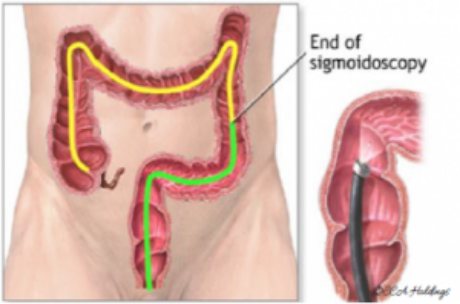Polyps Of The Colon And Rectum
WHAT ARE POLYPS?
A colon polyp is a small clump of cells that forms on the lining of the colon. Over time, some of these polyps may develop into colon cancer, which is often fatal when found in its later stages.
Anyone can develop colon polyps. You are at higher risk if you are 50 or older, are overweight and/or smoke, or have a personal or family history of colon polyps or colon cancer.
Colon polyps often do not cause symptoms. It is important to have regular screening tests, such as colonoscopy, because colon polyps found in the early stages can be removed safely and completely. The best prevention for colon cancer is regular screening for polyps and successful and complete removal of them.

SYMPTOMS OF COLON POLYPS
Screening for polyps and cancer is important as most colorectal polyps do not show any symptoms unless they are large.
Larger polyps can cause these symptoms:
- Excess mucus
- Abdominal pain
- Blood in the stool
- A change in bowel habits (such as frequency)
HOW ARE POLYPS DIAGNOSED?
Most polyps are found during colonoscopy and can be completely removed during the procedure. Techniques of removal include the utilization of a wire loop, biopsy forceps and/or electrocautery.
TREATMENT FOR COLON POLYPS
Complete removal of colorectal polyps is recommended as there are no means to determine which one will turn into cancer. Nearly all polyps can be removed or eliminated during a colonoscopy. Large polyps may require more than one treatment. Some patients may require surgery for complete removal.

Colonoscopy examines the entire length of the colon
Sigmoidoscopy examines only the lower third of the anal canal





